The Bike Library Connecting Portland’s Housed and Unhoused Residents
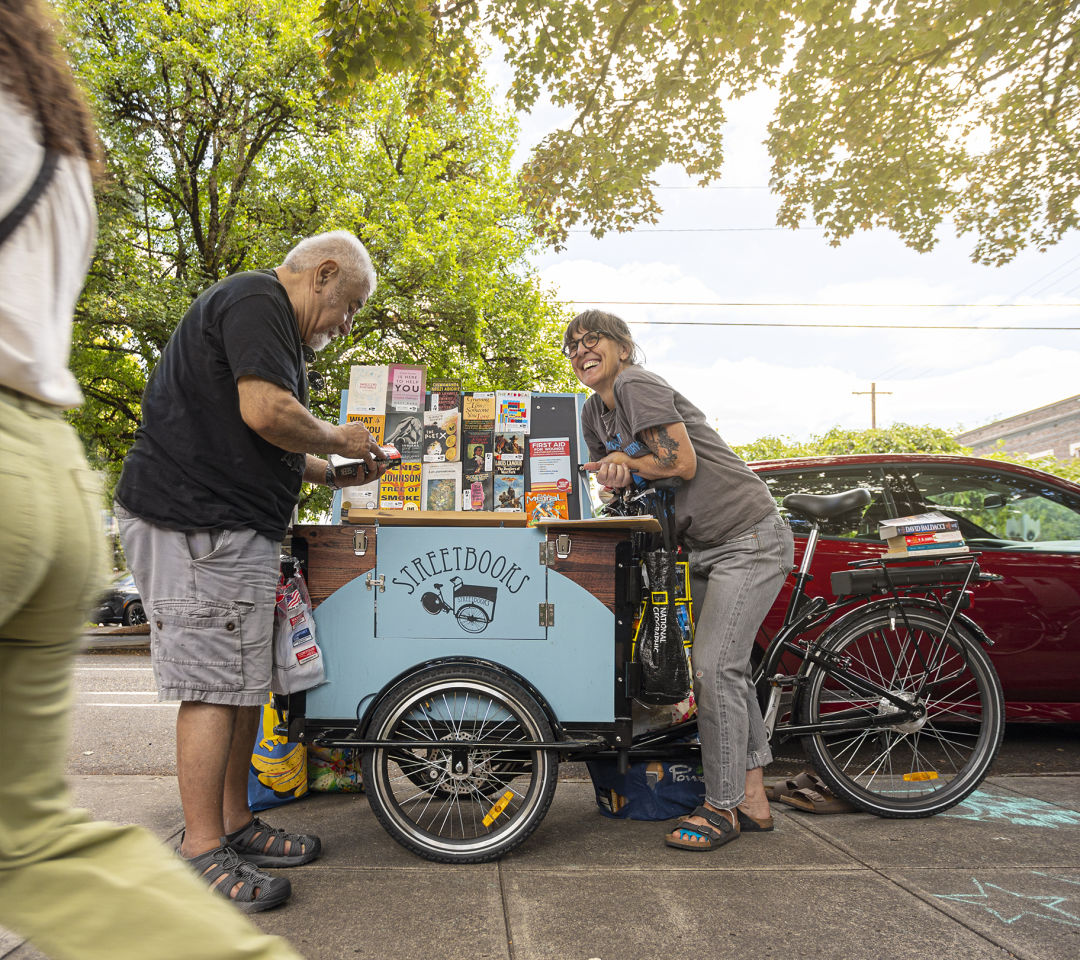
Joseph (left), a Street Books patron, checks out the trike’s selection with Diana Rempe, the nonprofit’s community outreach coordinator.
At 11am each Wednesday, a Street Books librarian pedals a trike retrofitted as a mobile library onto the sidewalk in front of Trinity Episcopal Cathedral at NW 19th and Davis. One morning this spring, Kindred by Octavia Butler, a self-help guide called The Grief Recovery Handbook, Harlem Shuffle by Colson Whitehead, and a volume from a Star Trek serial sat on a slim shelf inside the bike’s open lid. A Springsteen biography would later generate a few nostalgic conversations.
The sidewalk was alive with dogs, hugs, names, and stories picked up where they left off the week before. It was Richard Scarry’s Busytown. People came and went from the free lunch inside the church, swapped gossip with the librarians, and checked out titles they’d requested. It was a joyful vibe. And nearly everyone there was unhoused.
The trike couldn’t meet every need. One person was asking around for Tylenol. Another requested wound care supplies to treat her brother’s foot injury. Someone needed a tent. Literature, of course, wasn’t much help. But books are what Street Books does. The nonprofit mobile library hosts checkout sessions at a dozen places across the city each week, putting books in the hands of those who are houseless or otherwise living in precarity. The group does this not for some Pollyanna belief in the power of literature, but as a means of fighting for the humanity of its patrons.
“Street Books is about imagining a different kind of interaction between people who don’t know one another, who are suffering in or experiencing the world in radically different ways,” says community outreach coordinator Diana Rempe. While many aid organizations focus on providing and distributing humanitarian necessities, in its 15 years Street Books has found an opportunity for connection in lending books. The exchange forges ongoing mutual relationships that can extend past what’s possible in a need-based dynamic, such as a health-care service or housing shelter; it’s a social exercise, first and foremost. However small the gesture may seem, Rempe says returning with asked-for titles demonstrates that patrons’ desires matter in a system where the needful must often take what they get.
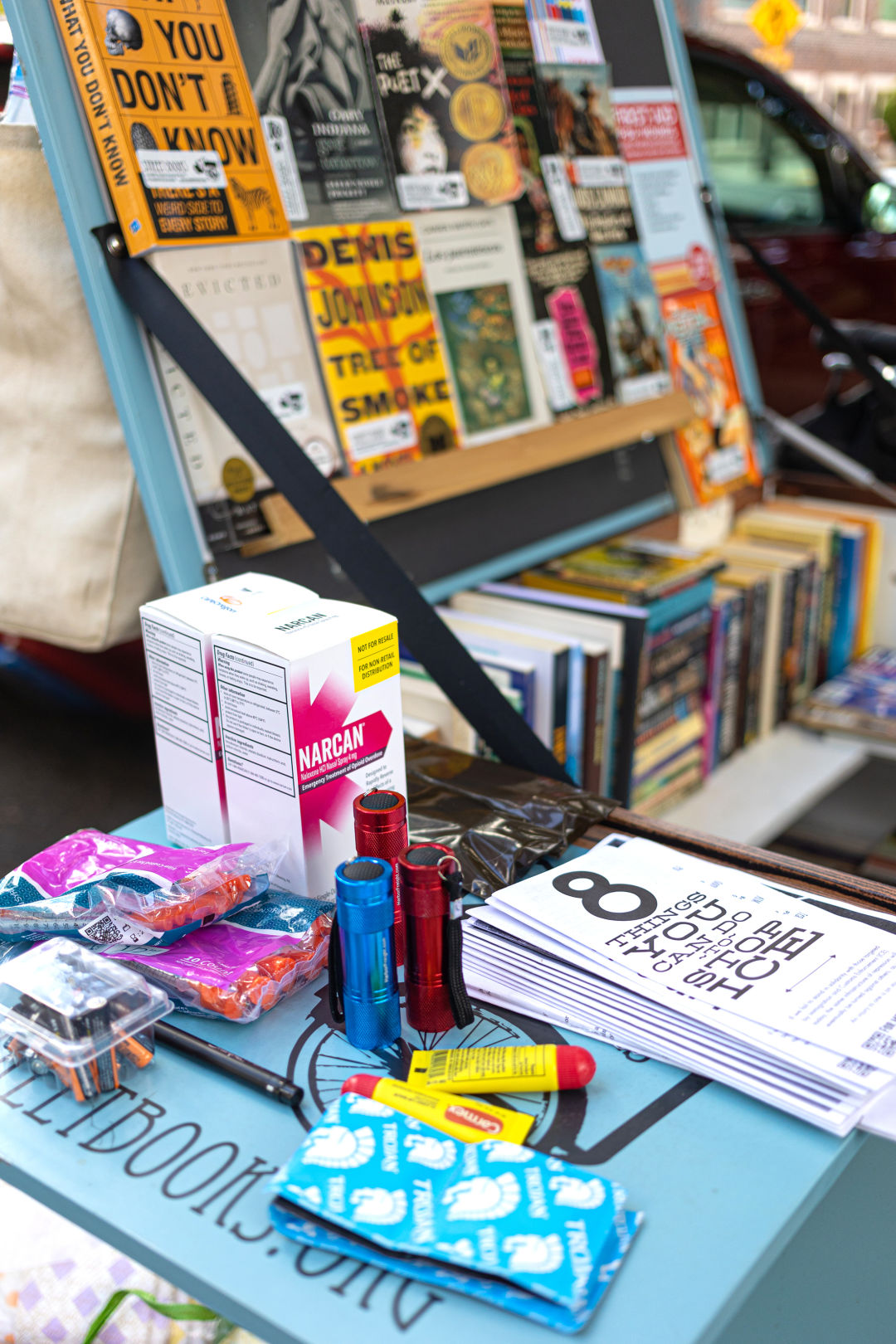
Though books are Street Books’ primary mode of outreach, it also hands out basic supplies during library shifts.
The conversation mirrors how author Omar El Akkad views books generally—as points of reciprocal connection between author and audience. He learned of Street Books when he moved to Portland in the mid-2010s and has championed its work ever since, often giving readings at its events. “It’s precisely because this isn’t a mechanism of day-to-day survival that it matters so much,” he says. Street Books surfaces a simple yet profound idea: that all people have rich inner lives, and an imperative to cultivate them, no matter their circumstances. “I don’t want to live in a community where certain groups of human beings are essentially expected to do nothing more than continue existing at the most basic level, and anything beyond that is considered too extravagant,” El Akkad says.
Still, Street Books doesn’t eschew the basics. That day at the church, patrons walked away with LED flashlights, wet wipes, bandages, and reading glasses, all of which hung informally from the trike’s handlebars in reusable shopping bags. The library also gave out 3,500 doses of the opioid overdose prevention medicine Naloxone last year. Codirector of programs and operations Josh Pollock says these harm-reduction efforts follow naturally from book lending. “You spend this time getting to know somebody,” he says, “and you want them to be healthy in this life.”
Street Books is as casual in its procedures as it is in its approachable appearance. There are no plastic cards or IDs to check, no barcodes to scan, and no penalties for unreturned books. Librarians simply note first names and book titles by hand and encourage borrowers to return books if they can.
“Do you have the latest Write Around Portland?” one patron asked. “I have some work in that one.” No luck. But it went on the request sheet. Other titles leaving the cart spanned genres and eras: Walden, a Stephen King bestseller, A Clockwork Orange, Ed Yong’s 2022 smash hit An Immense World, a Vonnegut novel. One guy yahooed at the sight of a favorite childhood series. “This guy is a master of puns,” he said with a smile. “Every other sentence is word play.”
Karen Russell, the author of Swamplandia! and a Pulitzer Prize finalist, is a member of Street Books’ board and a regular Wednesday librarian. For her, the organization offers a glimpse of an alternate reality. “There just aren’t that many spaces where housed and unhoused neighbors in our city get together,” she says, “you know, in a volitional way.”
Russell read from her latest novel, The Antidote, at Street Books’ 15th anniversary
party in the South Park Blocks this June, sharing the bill with a regular patron named Steve and singer-songwriter Laura Gibson, who also volunteers with the group. Outside the art museum, patrons, supporters, and anyone else who showed up took in the performances and ate through enough pizza to serve 300, Rempe reports. They also consulted “grief stenographers,” who logged partygoers’ laments via typewriter then deposited them into a “volcano of sorrows” concocted by local artist Larry Yes. There was also a “book divinator,” which worked like a coin-operated fortune teller: Drop in a token and out pops the book one’s soul needs.
It was Busytown again, a fantasy of something like equality made momentarily real. “We get to experience that kind of belonging, and what it could be like if we had a different world premised on different values,” Russell says. It is a frustratingly ephemeral glimpse of real change, but once you have this picture, she says, “then it’s not like an endlessly deferred dream.”
Share this content:


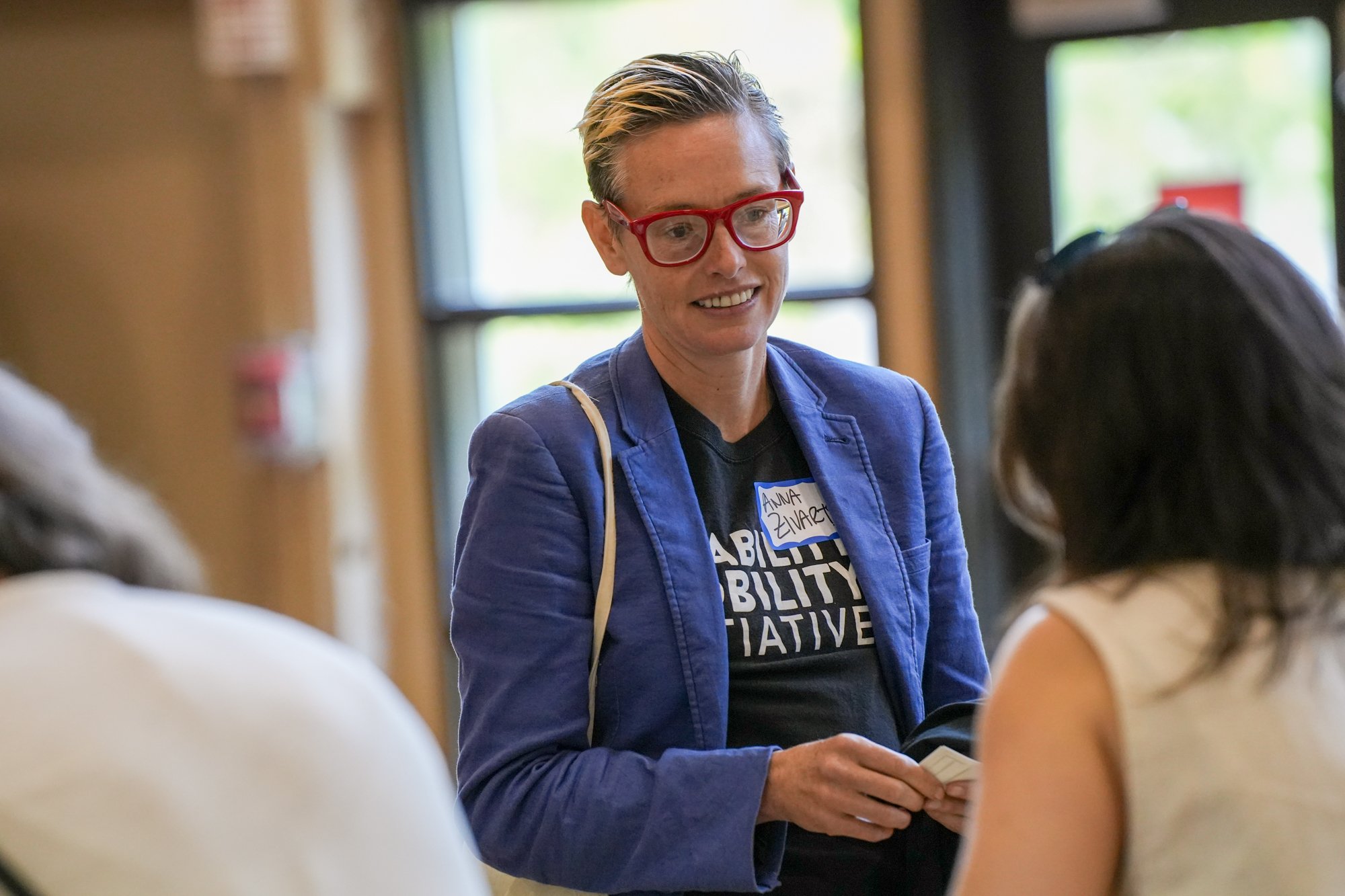
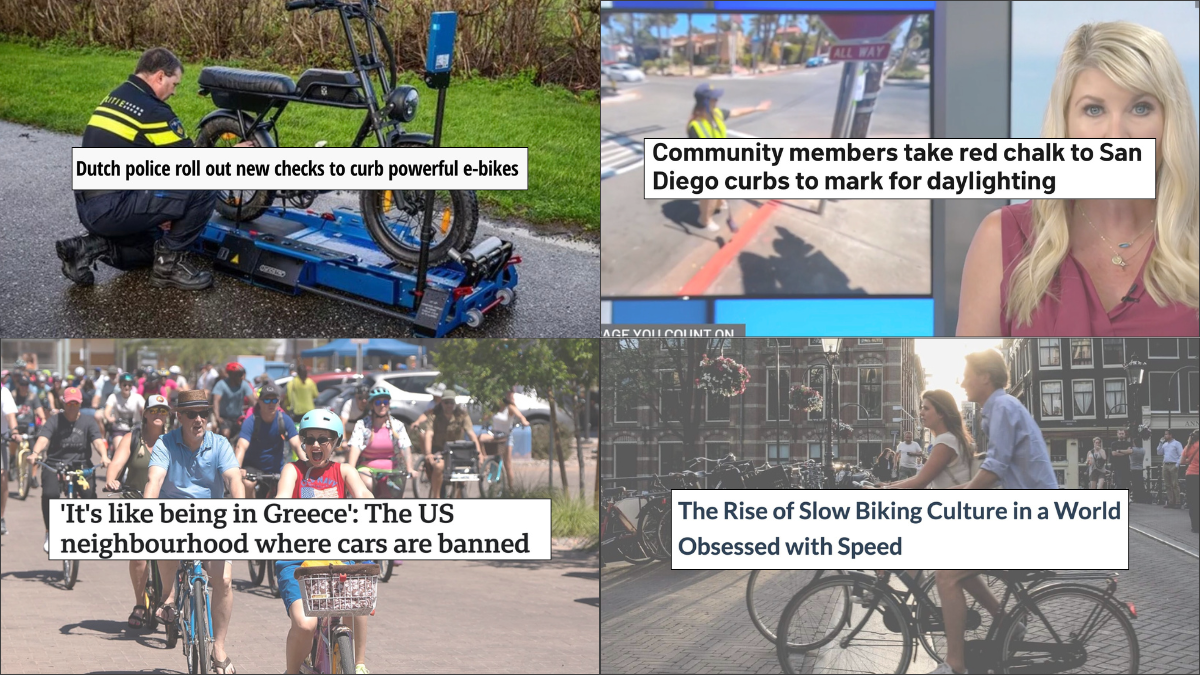
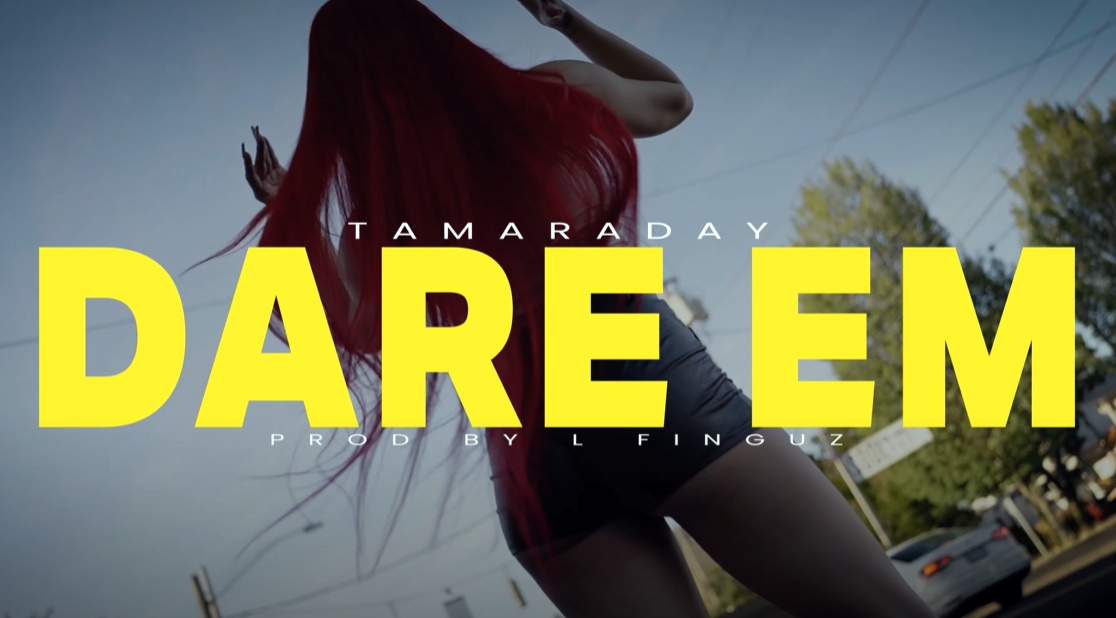
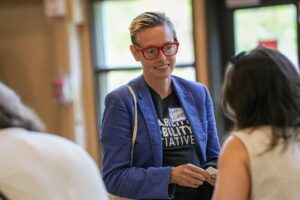
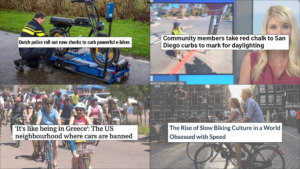
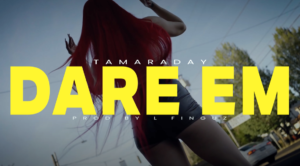
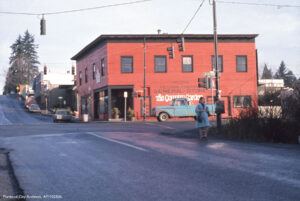

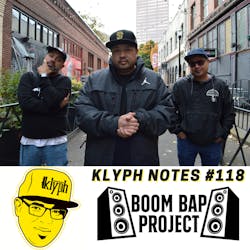

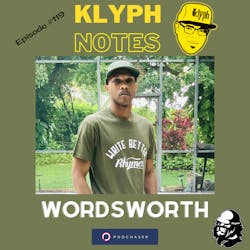
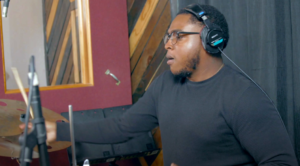
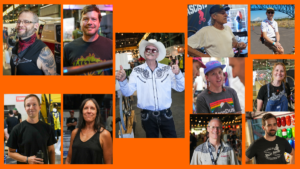
Post Comment